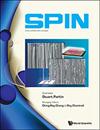Interactive Error Correcting Codes: New Constructions and Impossibility Bounds
IF 1.3
4区 物理与天体物理
Q4 PHYSICS, APPLIED
引用次数: 0
Abstract
An interactive error correcting code ( iECC ) is an interactive protocol with the guarantee that the receiver can correctly determine the sender’s message, even in the presence of noise. It was shown in works by Gupta, Kalai, and Zhang (STOC 2022) and by Efremenko, Kol, Saxena, and Zhang (FOCS 2022) that there exist iECC ’s that are resilient to a larger fraction of errors than is possible in standard error-correcting codes without interaction. In this work, we improve upon these existing works in two ways: First, we improve upon the erasure iECC of Kalai, Gupta, and Zhang, which has communication complexity quadratic in the message size. In our work, we construct the first iECC resilient to > 12 adversarial erasures that is also positive rate. For any ϵ > 0, our iECC is resilient to 611 − ϵ adversarial erasures and has size O ϵ ( k ). Second, we prove a better upper bound on the maximal possible error resilience of any iECC in the case of bit flip errors. It is known that an iECC can achieve 14 + 10 − 5 error resilience (Efremenko, Kol, Saxena, and Zhang), while the best known upper bound was 27 ≈ 0 . 2857 (Gupta, Kalai, and Zhang). We improve upon the upper bound, showing that no iECC can be resilient to more than 1347 ≈ 0 . 2766 fraction of errors.交互式纠错码:新结构和不可能界限
交互式纠错码(iECC)是一种交互式协议,它保证接收方即使在存在噪声的情况下也能正确地确定发送方的消息。Gupta、Kalai和Zhang (STOC 2022)以及Efremenko、Kol、Saxena和Zhang (FOCS 2022)的研究表明,与没有相互作用的标准纠错码相比,存在对更大比例错误具有弹性的iECC。在这项工作中,我们从两个方面改进了这些现有的工作:首先,我们改进了Kalai, Gupta和Zhang的擦除iECC,其通信复杂度为消息大小的二次元。在我们的工作中,我们构建了第一个对大于12个对抗性擦除具有弹性的iECC,这也是正速率。对于任何ε > 0,我们的iECC对611−ε对抗性擦除具有弹性,其大小为O ε (k)。其次,我们证明了在位翻转错误的情况下,任何iECC的最大可能错误恢复能力的上界。已知iECC可以达到14 + 10−5的错误弹性(Efremenko, Kol, Saxena, and Zhang),而已知的上界是27≈0。2857 (Gupta, Kalai, and Zhang)。我们改进了上界,表明没有一个iECC可以弹性大于1347≈0。误差的2766分。
本文章由计算机程序翻译,如有差异,请以英文原文为准。
求助全文
约1分钟内获得全文
求助全文
来源期刊

Spin
Materials Science-Electronic, Optical and Magnetic Materials
CiteScore
2.10
自引率
11.10%
发文量
34
期刊介绍:
Spin electronics encompasses a multidisciplinary research effort involving magnetism, semiconductor electronics, materials science, chemistry and biology. SPIN aims to provide a forum for the presentation of research and review articles of interest to all researchers in the field.
The scope of the journal includes (but is not necessarily limited to) the following topics:
*Materials:
-Metals
-Heusler compounds
-Complex oxides: antiferromagnetic, ferromagnetic
-Dilute magnetic semiconductors
-Dilute magnetic oxides
-High performance and emerging magnetic materials
*Semiconductor electronics
*Nanodevices:
-Fabrication
-Characterization
*Spin injection
*Spin transport
*Spin transfer torque
*Spin torque oscillators
*Electrical control of magnetic properties
*Organic spintronics
*Optical phenomena and optoelectronic spin manipulation
*Applications and devices:
-Novel memories and logic devices
-Lab-on-a-chip
-Others
*Fundamental and interdisciplinary studies:
-Spin in low dimensional system
-Spin in medical sciences
-Spin in other fields
-Computational materials discovery
 求助内容:
求助内容: 应助结果提醒方式:
应助结果提醒方式:


